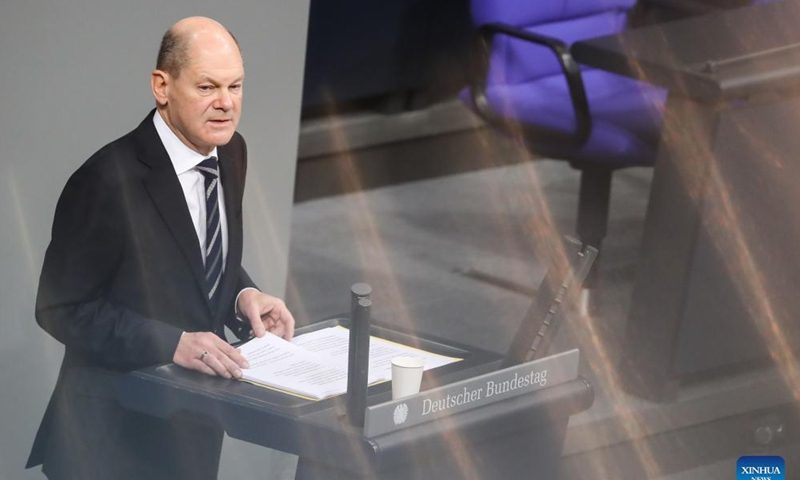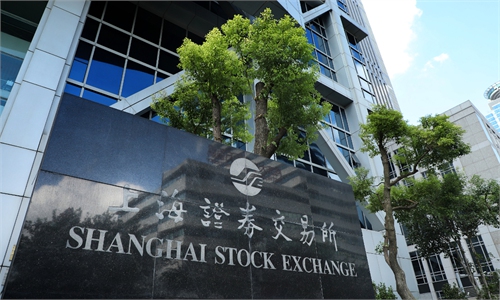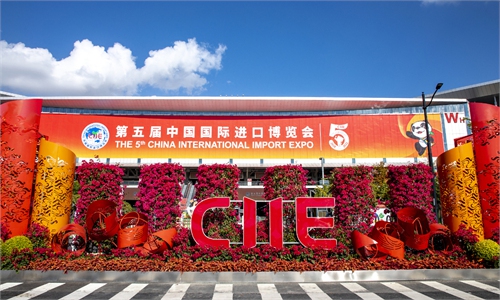European politicians become aware whether to fix their eyes on convergence of interests or ideological differences

German Chancellor Olaf Scholz delivers his first government statement at the Reichstag building in Berlin Dec. 15, 2021, after he was elected as the new federal chancellor Dec. 8.(Photo:Xinhua)
Europe has always found itself torn between cooperating with China or finding faults with the second-largest economy in the world. It defines China as a “systematic rival,” but cannot get away from the fact that China is Europe’s biggest source of imports. Should European politicians fix their eyes on the convergence of interests or ideological differences? Their attitude is becoming clear. German Chancellor Olaf Scholz has provided his answer.
In a signed article on the website of the American magazine Foreign Affairs, Scholz discussed what he described as “Zeitenwende,” or "an epochal tectonic shift." In the long piece, he said that the Ukraine crisis has put an end to an era, and new powers, including China, have emerged. He doesn’t think the world is on the brink of an era of bipolarity in the international order; instead, different countries and models of governments are competing for power and influence in this new multipolar world. He also talked immensely about China, saying China’s rise does not warrant isolating it or curbing cooperation.
The viewpoint of Scholz can find some resonation in Europe, especially in old-brand Western European countries. As strategic competition between major powers intensifies, many European politicians and scholars do not want to see a new cold war or an ideological contest. Rather, they want to see the international order remain stable. Now with the Russia-Ukraine conflict continuing to consume Europe’s strength, Europe is eager to find a way out.
Song Luzheng, a research fellow at Fudan University, believes that “Zeitenwende,” referred to by Scholz, is set against the backdrop of the rise of the East and the decline of the West.
“Long gone are Europe’s good old days. The US is in relative decline, while Europe is in absolute decline. Without China’s rise, the West would have retained its hegemonic status, even while facing many problems. But China’s rise ended the era when the West ruled and brought about a multipolar world,” Song told the Global Times.
Song noted that another background of Scholz’s article is the Inflation Reduction Act promoted by the Biden administration. The US act is a highly protectionist measure to shore up the US’ own interests at the expenses of Europe. Although French President Emmanuel Macron managed to get Biden’s promise to “tweak” it during his visit to the US last week, it obviously won’t soothe the nerves of European leaders, especially for Macron and Scholz. Therefore, by playing the “China card,” European political elites want to send a message to the US: If the US does not make compromises, Europe will find it hard to cooperate with the US.
He Zhigao, a research fellow with the Institute of European Studies, Chinese Academy of Social Sciences, told the Global Times that in the past couple of years, Europe has been overshadowed by various crises, and European elites are looking for a driving force to push forward changes. With old crises unsolved and new ones emerging, Europe begins to worry about its declining role in the world, and such a sense of fear and insecurity is growing.
“The core of Europe feeling secure is to keep strategic independence and promote European integration. Meanwhile, Europe should play a balancing act in the China-US competition rather than dance with US tone and seek ‘decoupling’ with China,” said He, adding that only when Europe has a strong foothold in the global power pattern can Europe regain its sense of security.
The Chinese scholar noted that Germany is clear about China’s role as a stabilizer in world affairs, such as the Russia-Ukraine conflict and global governance. Therefore, Germany and the rest of Europe should set aside differences with China and let pragmatic cooperation dominate China-Europe ties.
From Scholz’s article, one can easily find that he is seeking balance. He did not forget to emphasize the “values" Europe often touts and express concerns about China’s "growing power." After all, what’s in his mind first is the interests of Germany and Europe. Whether it is the globalization he defended in October before his recent China trip or the cooperation with China he tried to promote in the article, they benefit Europe.
And, understandably, they benefit China, too. It is exactly the areas where the interests of China and Europe converge that drive the two to cooperate. Given its pivotal role in Europe, Germany is bound to affect Europe’s overall attitude toward China.


